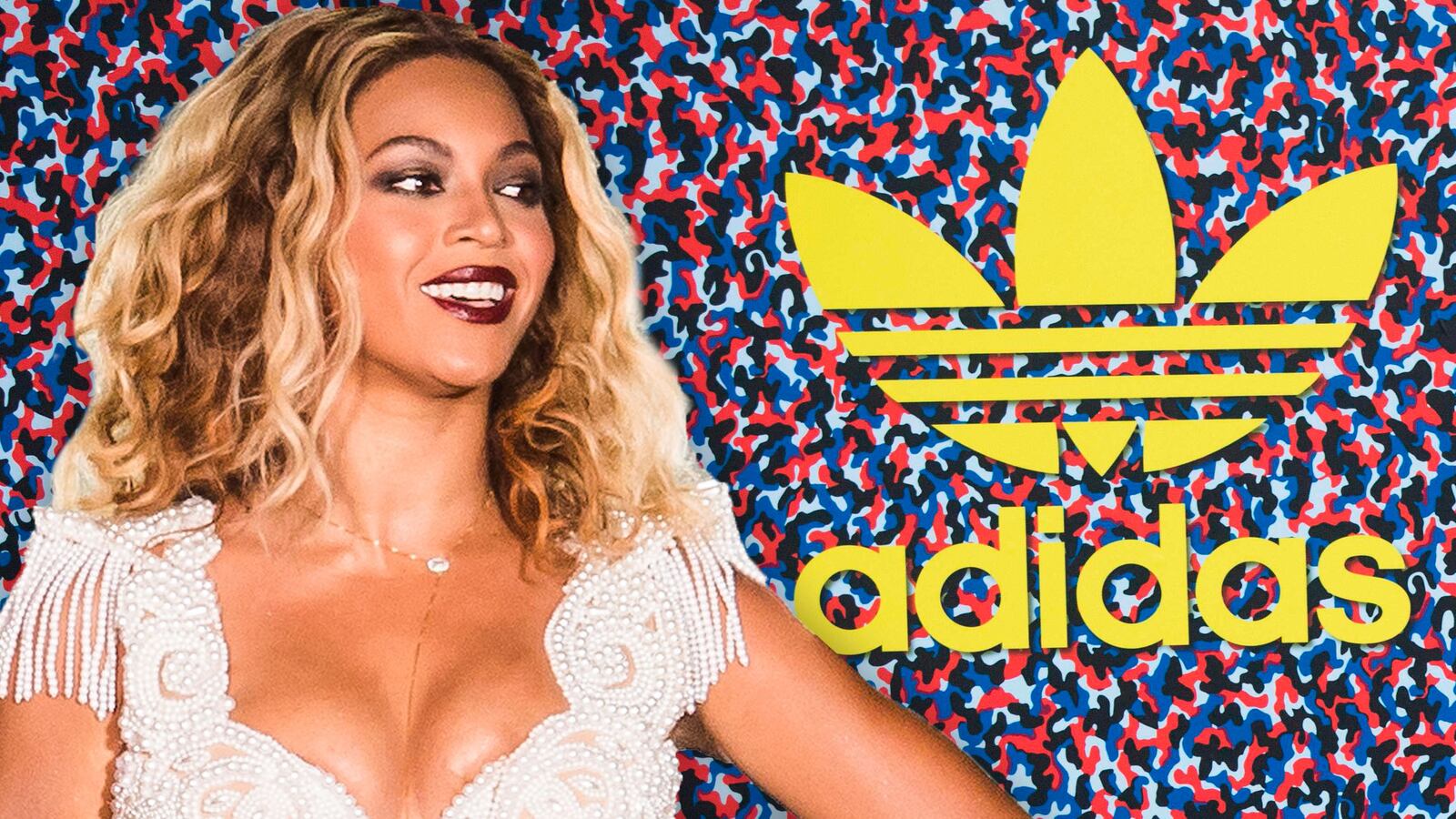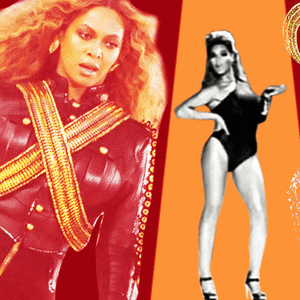Mere mortal celebrities want to sell you sneakers. Beyoncé, however, wants to give you a purpose.
On April 4, news broke that the singer and activist signed a deal with Adidas to create a “multi-layered partnership.” (“*Beyoncé signed Adidas,” one fan clarified on Twitter, in reference to her beyond-major star power.)
Along with selling sportswear, the apparel company will work with Beyoncé to “[inspire] and [empower] the next generation of creators, driving positive change in the world through sport and identifying new business opportunities.”
Details of what the collaboration will look like, exactly, are scarce. CNBC sports business producer Jess Golden reported that Beyoncé will serve as a “creative partner for the brand, develop new signature footwear and apparel, as well as re-launch Ivy Park with adidas.”
Just like megafans who have already decided they will buy everything in the Beyoncé x Adidas sight unseen, it seems that the creators themselves are less interested in aesthetics and more focused on their proposed outreach plans.
Per the company's press release, the two parties will work together to create a “unique purpose-driven program focused on empowering and enabling the next generation of athletes, creators, and leaders.”
That word salad could describe practically anything. Is the “purpose-driven program” mere inspirational branding? Or will Beyoncé take part in on-the-ground outreach? A representative for Adidas did not respond to The Daily Beast's request for clarification.
According to the press release, “Meaningful and rich storytelling will be the foundation for both Beyoncé’s collection with adidas as well as the re-launch of her Ivy Park brand.”
Again, what?????? But surely, no one would be upset with an ad campaign styled after Lemonade, Beyoncé’s transcendent visual album.
When Ivy Park launched in 2016, the collection included an assortment of leggings, bodysuits, tank tops, and other mesh-y things. Most of the pieces came branded with large “IVY PARK” labels that were appreciated by superfans, but lightly mocked by logo-haters.
Ivy Park was conceived as a joint venture with Topshop’s Sir Philip Green. Though the line predictably sold out quickly, there were complaints about too-small sizing and high prices.
The Sun would later report Beyoncé’s claims that her clothing “empowered women through sport” were undermined by the fact that “poverty-stricken seamstresses” were creating the threads in Sri Lankan sweatshops for just $8.47 a day (a sum that is actually twice the amount of minimum wage in the country).
Beyoncé’s team would hit back via a press release, claiming that Ivy Park “has a rigorous ethical trading program. We are proud of our sustained efforts in terms of factory inspections and audits, and our teams worldwide work very closely with our suppliers and their factories to ensure compliance.”
Two years later, reports surfaced that Sir Philip had attempted to prevent the publication of an exposé accusing the billionaire businessman of sexually harassing staff. In response, Beyoncé purchased back Ivy Park.
By ending the relationship, the singer also became the first black woman to own an athleisure line.
Until very recently, sports brands like Lululemon hawked a whitewashed athleisure aesthetic—think: the cliché, skinny woman in leggings and a tank top running off to yoga class, turmeric latté optional. Despite its sprinkle of PR challenges, Ivy Park will always be seen as a champion of inclusive fashion through its connection to Beyoncé.
Adidas reps made it clear that Beyoncé will retain full ownership of her retail baby (named after her daughter, Blue Ivy). Whether or not this new partnership is intended to be a fresh start for a fledgling brand, or the deal was inked merely because the price was right, likely does not matter to shoppers.
Most are just excited to get their hands on the new merch—one way to feel closer to Beyoncé until new music comes along.





